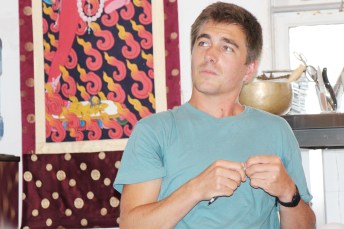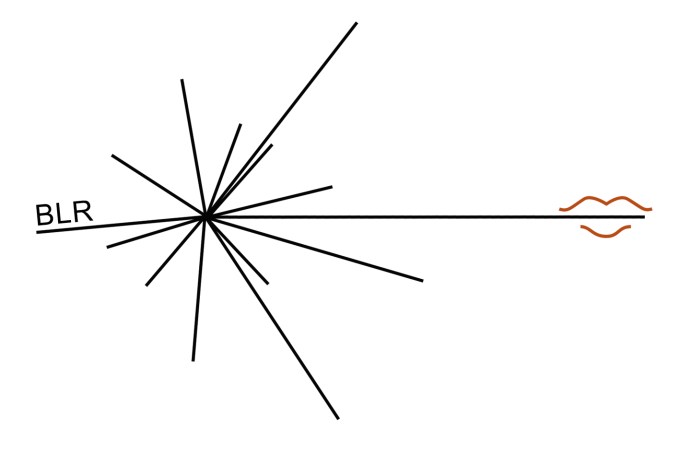Field Study #007, The Extinction Event
Field Study #007, The Extinction salon On August 13, 2015, we traversed to the edge of the San Francisco Bay to “The Commons for Art and Social Change” in Fort Mason, to conduct Field Study #007 in search of words to express feelings, thoughts and experiences around the current extinction event for which we do not yet have language….
Here is what we found:
Chief Onomastician Anthony Shore drilled right in bringing “Stieg” for his pre-existing term. Stieg is a Proto Indo European root meaning to prick or push through, from this word eventually came to “extinguish” and after that “extinction”. Drawing a lexical link between the act of extinguishing a flame and the dying out of a species. This lead to a brief conversation about the western world’s history with its understanding of extinction. It was not that long ago that the west dismissed outright the idea that a species on God’s great earth could ever go extinct. When in the late 1700s early 1800s, large fossils of large megafauna were discovered in the New World could not be found in the wild— no matter how hard we looked, the slow dawning that it was possible that great animals might have gone extinct was a revolution in Judeo Christianity’s understanding of the natural world around us.
To this Michael McElligott of The Long Now Foundation introduced a theory that the “loss of biodiversity often follows the loss of language diversity”, to which Chris Dresser concurred adding her wealth of understanding about the things that are going extinct in diverse human cultures and how this cultural loss impacts the health of ecosystems and the planet. If we don’t have a word to point to something it’s hard for us to care for or steward it.
Ethan Estess, who works with endangered great white sharks, and blue fin tuna, also brought with him a feeling of a sort of anticipated remorse that he gets right before he kills a fish when he is out fishing, even though he is fishing at an incredibly sustainable level. He expressed that this feeling encapsulated a discord between knowing what he knows about the global impacts of industrial scale fishing yet at the same time knowing that in order to survive as a homo sapien he must eat to live. He described this as a “remorse over the thing you put in your mouth to survive which simultaneously leads to the further diminishment of another, sometimes threatened species”. The group, seeking to aid Ethan in creating a new word to express this remorse, suggested existing words such as umami, autonomic, primal, cognition, apex, omniscience.
We jammed on pregret or premorse, for the feeling of cerebral regret in anticipation of something that you will consume which your body will enjoy yet which might lead to less joy as your cognizant of the overall biological impact of your consumption.
Meta predator and apex guilt were new terms generated, both riffing off the idea of ones contemplation of a deep understanding that humans are the apex predator on our planet and what that feels like to be very in-tune and self aware of this; how this knowledge impacts our decisions or enjoyment; the implications, responsibilities, and deep and real concerns that has for our own species and those we consume or kill for our own existence.
koyaanisumami (derived from koyannis or Hopi for “out of balance”, as in koyaanisqatsi and umami implying a primal attraction to the taste of meat or fish) came from an idea that ones love of the taste of fish or meat is both deeply biological and autonomic but in the context of the word we were looking for is paired with a cerebral understanding of the responsibilities, concerns and consequences of eating it, especially as it relates to those who fish and who respect and love the sea and its creatures, but also want to take from it.
koyaanisumami
apex guilt
Artist and Professor, Mike Arcega brought with him a feeling that because we are surrounded by fast media, and Hollywood depictions of “the apocalypse” as fast and dramatic, maybe we can’t actually see it for what it is, perhaps we are actually living through the apocalypse, and that rather than being a fast experience, it’s actually happening very slowly (on a contemporary human time scale). Perhaps the apocalypse is boring. Perhaps, in part, because we have surrounded ourselves with fast dramatic distractions combined with the fact that many humans are disconnected from the nature we need to survive, the majority of urban dwelling humans are actually experiencing the apocalypse right now (though at what feels like a slow and falsely imperceptible rate.) He and the group went further to explore that perhaps we actually seek out these very dramatic media distractions and electronic toys as a way to avert our attention from what we sense is occurring at a rate that is terrifyingly and painfully slow to us.
For this instance myopia or nearsightedness was introduced by Jenny Odell, the Current Artist in Residence at San Francisco Recology, as a springboard for creating the new word:
Myopecene (a time or epoch marked by short sighted-ness) to express this perceived experience of the Apocalypse.
Slowpocalypse was then coined, and people thought this might be an important word to add to global lexicons but also felt it lacked the boredom component, so ennuipocalypse (derived from ennui or a feeling of listlessness and dissatisfaction arising from a lack of occupation or excitement) was created by the group.
That helped but did not encapsulate the idea that what we see as occurring sooooo sloooowly on a human time scale is actually happening at breakneck speed on a geologic time scale. So the beehive of creativity suggested perhaps Slow Ennuipocalypse.
Slow Ennuipocalypse.
Heidi suggested we might somehow incorporate a musical term that includes a fast moving slow pace, (we’re still digging for this exact word).
Apocanetflix or Apocaflix (apocolypse + netflix) were also coined. To best discuss the distractions we are creating for ourselves in the United States as a way to not look at the apocalypse we are in. This was informed by a brief conversation of Freud’s “Death Drive”. Egosystem (ego + ecosystem) was also coined.
Slowpocalypse
Jenny Odell also shared her feeling of disorientation that she feels while conducting her immersive research into the production of discarded consumer goods as an Artist in Residence at the SF Dump. She noted that when she walks through the world she looks at objects and they cease to be “a beach towel” or a “couch” or a “pillow”, instead she automatically also sees the production line for the materials, the factory they were assembled on, the human suffering in creating these objects, the resources extracted, the shipping containers they were carried to and fro in, ex cetra. She describes this as a disorientation of scale, where “a discrete object becomes a node on a network”. In other words, the experience of seeing or touching something small and discrete and then having it open up a figurative black hole of information in her mind, and then return to being a regular object, causes her disorientation.
Tralfamidorification
Existing words the group thought might inspire a new neologism included: paralysis, fetish, social relations, meta, micro vs macro. Context Collapse was coined. From the word refuse we got Refusal. From disorientation and deconstruction we got disconstruction. The idea that we should have a word that expresses the disorientating oscillation that used the terms micro and macro was brought up, but this word has not yet been coined. Anthony introduced Jenny to Kurt Vonnegut’s fictional alien race of Tralfamadorians (who can look at an object and know its past and future. Tralfamidorification was then coined. Even without a word being coined, Jenny expressed a feeling of great relief in learning that this thing she was experiencing which felt isolating and weird, which she did not have the words to talk about, was something that others in the room could relate to and which Vonnegut had written about extensively. This fulfilled one of the missions of the Bureau: just as important as coining new words, the Bureau is equally passionate about creating and facilitating a new space where people from diverse backgrounds can connect over mutual feelings, thoughts and experiences related to the Anthropocene to realize they are not alone in experiencing these new sensations and feelings. And that others deeply sense things that are amiss and changing.
Context Collapse
Jason Groves, a current fellow at the Exploratorium, brought with him a desire to name a human phenomena where we can’t accept that a species has gone extinct. Citing reports of people claiming to see Tasmanian Tigers or other extinct species still roaming. He likened this to a psychological inability to accept the extinction because it is just too difficult for us to accept . Borrowing from the idea of a phantom limb, something that was a part of us but is gone now but that we still can feel viscerally— hauntingly at times, the word Phantom Species was termed. This word was later amended to Phantom Species Syndrome to better encapsulate and represent the phenomena which is really about OUR inability to accept the loss of a species because perhaps we as humans, appreciate on some deep biological level, this species is in some way a limb, a part of our ecosystem that essential to maintaining balance, but that has tragically been removed.
Phantom Species Syndrome
This dovetailed well into Mikl McElligott’s wordless emotion or experience. This feeling that in some 50 years he will be talking wistfully about animals that will be then extinct, but which are still on the earth right now. This encapsulates a sort of “wistful dread”. And when he focuses his attention on this he thinks, “why don’t I go see them now?”. But of course the day to day responsibilities prevent him from stopping what he is doing to go see them, but he wonders if he will look back and regret that. pre-postPartum depression was coned and a reference was made to pre-traumatic Stress disorder. This feeling was similar to many that have come up in multiple Field Studies, expressing what Hephzibah Strmic-Pawl, PhD expressed as “an unknown anticipated regret.” Jenny Kendler and Alicia Escott are currently working on a similar word to discuss a child’s strait faced acceptance that, for example, they should study ocean biology so that they will have a chance to see and understand the coral reefs before they are gone.
The Bureau is still looking for words to describe this experience of a projection into the future where one is looking at the future— watching their future self looking back nostalgically at the current present. Reflecting on what we still had at that time, knowing all the while that we still have it now.
Please contact us if you find this word!
Field Study #007 Participants Included:
Interdisciplinary Artist, Professor of Art at S.F. State
Artist & Creator of “A Catalog of Extinct Experiences”
Artist with Master of Science from Stanford University now working with Sharks & Art
Interdisciplinary Artist & Designer, Currently Artist in Residence at ReEcology
Writer, Professor of Germanic Languages & Urban Fellow at the Exploratorium
Curator, The Long Now Foundation
Professional Word Maker and our Chief Onomastician
This completes The Bureau Of Linguistical Reality Field Study Report Back #007: The Extinction Event.
Please check back for Field Study Report back #008 Science Fiction




Leave a comment